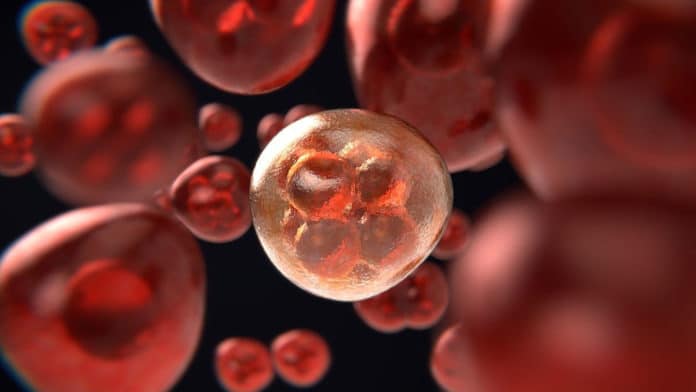Sometimes known as stem cell transplant, a n=bone marrow transplant is used to treat certain types of blood cancer such as leukemia, myeloma, and lymphoma. The treatment involves replacing bone marrow with healthy cells.
However, in up to 70 percent of recipients, bone marrow transplant side effects can be seen- causing a potentially deadly complication of graft-versus-host disease (GVHD), where the donor’s immune cells attack the host’s tissues, including the skin, gut, and lungs.
A new study by the QIMR Berghofer Medical Research Institute recently offers hope for the side effects.
Scientists found that an immune system protein called Interferon-Lambda – also known as IL-29, could protect gut bacteria from damage caused by bone marrow transplants and GVHD. The protein also protects against gut damage caused by other conditions like inflammatory bowel disease.
The head of QIMR Berghofer’s Immunopathology Laboratory, Dr. Kate Gartlan, said, “We discovered a new way in which IL-29 works to prevent the gut damage. We found that IL-29 – a cytokine, or protein that occurs naturally in the immune system – acts on stem cells in the gut to boost their function.”
“Stem cells are needed to regenerate the gut after damage. So by giving IL-29 to mice, it strengthened their gut. Those mice later had better outcomes after bone marrow transplants because the IL-29 protected them from the inflammation we usually see.”
“This is the first time anyone has identified how interferon-Lambda works on gut stem cells to protect them from damage. We can’t say yet that interferon-lambda will have the same effect in humans, but these early results in mice are promising.”
QIMR Berghofer researcher and Royal Brisbane and Women’s Hospital transplant physician Dr. Andrea Henden said the team hoped IL-29 could become a new preventative option for GVHD.
Dr. Henden said, “Graft-versus-host disease is a terrible complication of bone marrow transplantation, especially when it involves the gut. At the moment, there are limited effective treatments available, so we desperately need new options to prevent this often fatal disease.”
“Interferon-Lambda is already available as a drug for other diseases, so we hope to also start testing it in patients with gut damage and inflammation. If we could make bone marrow transplantation safer, then we could use it to treat more patients with blood cancer. Hopefully, we could also reduce the use of toxic drugs in patients who develop GVHD.”
“Our findings also suggest that Interferon-Lambda could help prevent the gut inflammation that occurs in other disorders like inflammatory bowel disease and Crohn’s. As a next step, we also hope to test whether this is the case.”
Journal Reference:
- Rachael C Adams, Dylan Carter-Cusack et al. Donor bone marrow-derived macrophage MHC II drives neuroinflammation and altered behavior during chronic GVHD in mice. DOI: 10.1182/blood.2021011671
